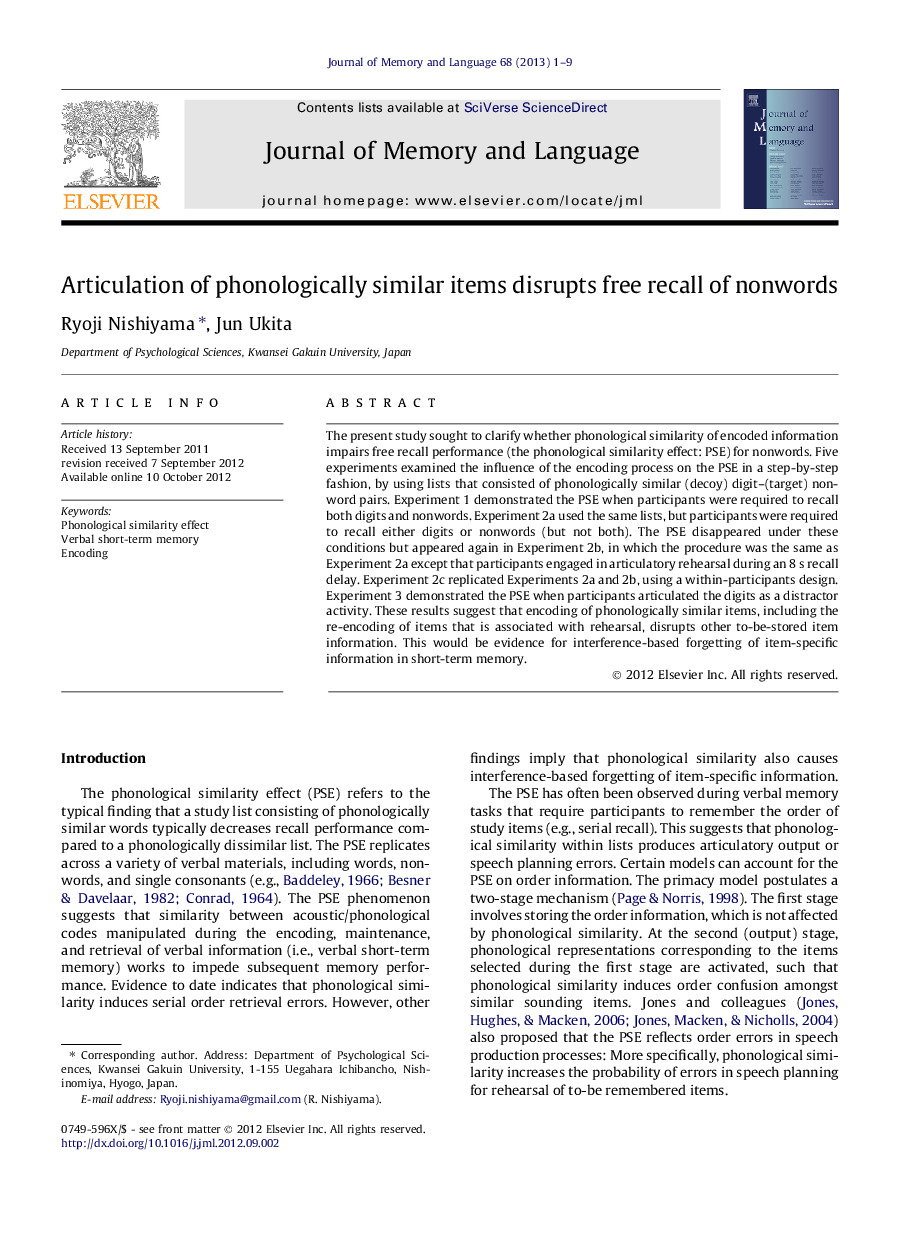| Article ID | Journal | Published Year | Pages | File Type |
|---|---|---|---|---|
| 931915 | Journal of Memory and Language | 2013 | 9 Pages |
The present study sought to clarify whether phonological similarity of encoded information impairs free recall performance (the phonological similarity effect: PSE) for nonwords. Five experiments examined the influence of the encoding process on the PSE in a step-by-step fashion, by using lists that consisted of phonologically similar (decoy) digit–(target) nonword pairs. Experiment 1 demonstrated the PSE when participants were required to recall both digits and nonwords. Experiment 2a used the same lists, but participants were required to recall either digits or nonwords (but not both). The PSE disappeared under these conditions but appeared again in Experiment 2b, in which the procedure was the same as Experiment 2a except that participants engaged in articulatory rehearsal during an 8 s recall delay. Experiment 2c replicated Experiments 2a and 2b, using a within-participants design. Experiment 3 demonstrated the PSE when participants articulated the digits as a distractor activity. These results suggest that encoding of phonologically similar items, including the re-encoding of items that is associated with rehearsal, disrupts other to-be-stored item information. This would be evidence for interference-based forgetting of item-specific information in short-term memory.
► Phonological similarity of list items disrupts short-term recall. ► Phonologically similar digitnonword pair lists disruptes free recall of nonwords. ► Articulating the phonologically similar digits disruptes nonword recall. ► The encoding of phonologically similar information impairs itemspecific memory.
